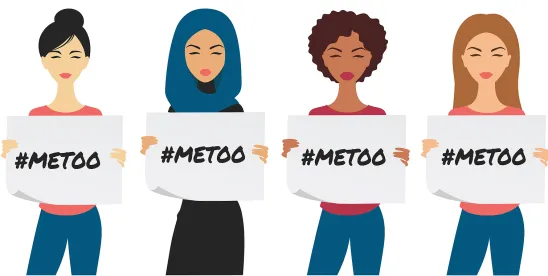As we have previously reported, in early 2022, Congress passed and President Biden signed into law the Ending Forced Arbitration of Sexual Assault and Sexual Harassment Act of 2021 (EFAA), a law that bans mandatory arbitration of certain sexual assault or sexual harassment claims. Since its enactment, we have tracked some of the procedural challenges employers face as a result of the law (see here, for example), and a recent decision from the Eighth Circuit Court of Appeals, Famuyide v. Chipotle Mexican Grill, Inc. et al., No. 23-3201 (8th Cir. Aug. 5, 2024) adds yet another wrinkle for employers adapting to the EFAA.
The EFAA gives employees the option to void a pre-dispute arbitration agreement with respect to a covered dispute or claim (i.e., one involving sexual assault or harassment) that arises or accrues on or after the date of enactment of the EFAA, i.e., March 3, 2022. 9 U.S.C. §§ 401, 402(a). By the EFAA’s express terms, employers can still fairly compel arbitration of covered claims that accrued prior to March 3, 2022, as the law only applies prospectively. When, then, does a covered dispute or claim accrue for purposes of the EFAA? Famuyide answers that question.
Ms. Famuyide began working at a Chipotle Mexican Grill in Minnesota in May 2021. She signed an agreement at the time she was hired requiring her to arbitrate all employment claims she may have against Chipotle. Shortly after Ms. Famuyide started working, a coworker allegedly began to sexually harass her. The misconduct escalated and, in November 2021, Ms. Famuyide alleges that her coworker sexually assaulted her in a restroom at work. Ms. Famuyide reported the assault to her manager, who was initially inclined to fire both employees but ultimately did not do so. Unable to perform her job duties, Ms. Famuyide took a leave of absence, but her leave was incorrectly keyed into the payroll system as a termination—one the company subsequently rescinded. Finally, on April 20, 2023, Ms. Famuyide sued Chipotle under Minnesota law alleging harassment, retaliation, vicarious liability for the sexual assault, negligent hire and retention of the coworker, and intentional infliction of emotional distress.
Chipotle moved to compel arbitration, arguing that the harassment and assault occurred prior to the EFAA’s enactment date and thus the “dispute” was arbitrable. Chipotle asserted that a “dispute” arises under the EFAA when the underlying conduct occurs—in this case, the alleged harassment and sexual assault. Alternatively, Chipotle argued that the dispute arose at least by February 2022, when Ms. Famuyide’s lawyers sent letters to the company indicating they were investigating potential claims against the company and inquiring as to its interest in a pre-litigation resolution.
The district court and the Eighth Circuit rejected Chipotle’s arguments. Noting that the EFAA does not define dispute, the Court relied on the dictionary definition of dispute to mean “conflict or controversy.” When the sexual assault allegedly occurred in November 2021, Ms. Famuyide did not assert a claim or cause of action against Chipotle, thus there was no conflict or controversy between the parties that could have been referred to arbitration at that time. Likewise, there was no “conflict or controversy” at the time Ms. Famuyide’s letters sent the “exploratory” letters to Chipotle about the possibility of settlement. Despite sending letters warning Chipotle to preserve relevant evidence and inquiring as to the company’s interest in resolution, the parties were still free to walk away. Ms. Famuyide may have elected not to proceed with a legal claim or the parties could have resolved their disagreement by voluntary settlement. Thus, there still was not a “dispute” that could be compelled to arbitration as of February 2022. The court concluded that there was not a cause of action that could have been compelled to arbitration, if legally permissible, until Ms. Famuyide filed suit, which did not happen until after the EFAA’s enactment. She was therefore free to sidestep the arbitration agreement and pursue her claim, and resolve her “dispute” with Chipotle, in court. The takeaway for employers is that, regardless of when the underlying alleged misconduct occurred, a claim or dispute accrues for purpose of the EFAA when an employee files a legal action. Since a hostile work environment claim may be deemed timely if the most recent act of harassment falls within the statutory window, this means that certain misconduct that occurred prior to March 2022—and which employers may erroneously assume is subject to arbitration notwithstanding the EFAA—may in fact be subject to non-arbitration litigation and the scrutiny that accompanies it, provided that the course of harassment continued after the EFAA’s enactment and is relevant to a timely, post-EFAA harassment claim.




 />i
/>i

